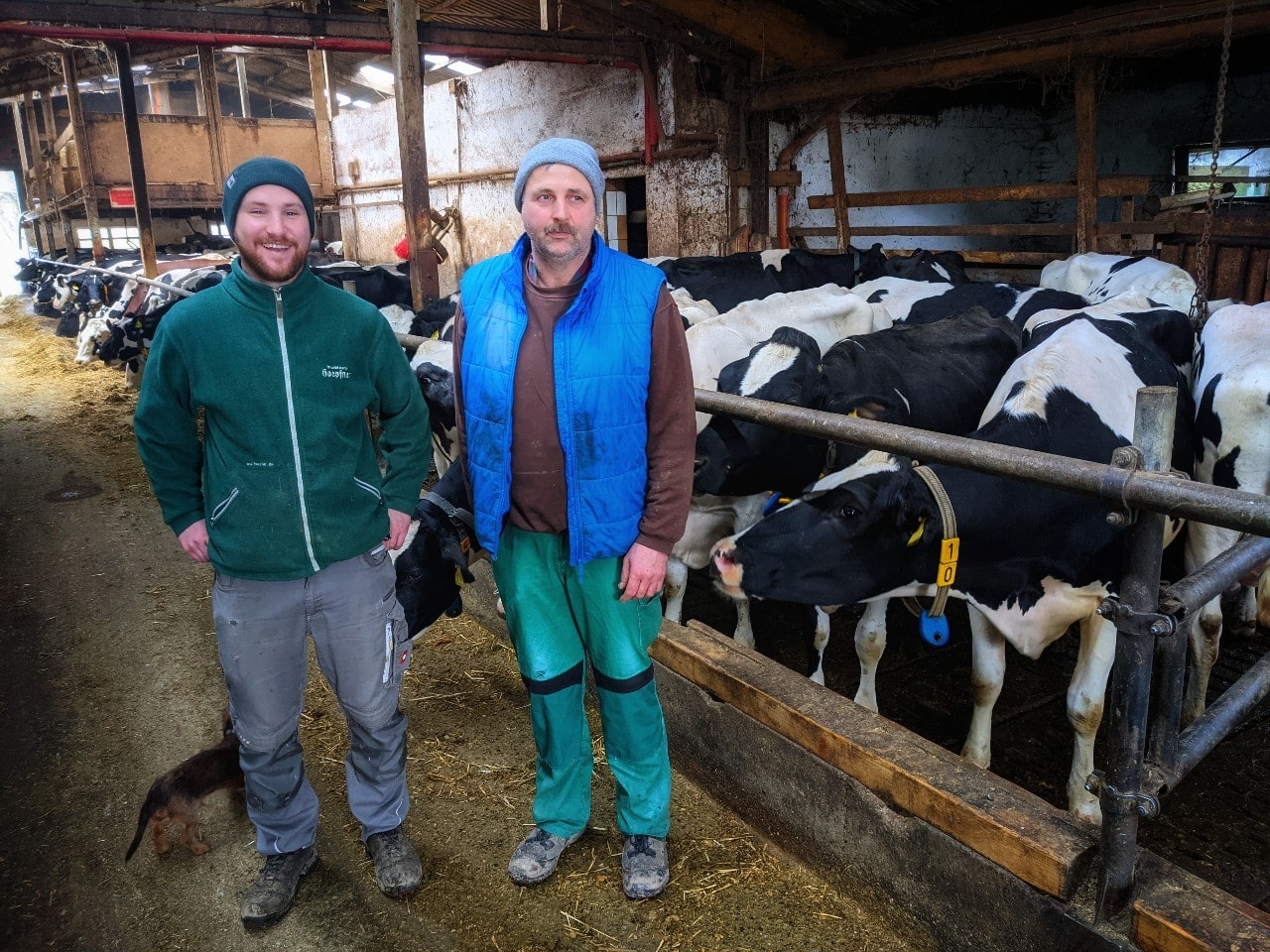Loss of milk – How the Lämmle-Hofmann family from Flehingen fights for appreciation and against their own downfall
The older ones among you may still be able to vaguely remember. Animal products, such as meat, used to be the exception rather than the rule on German tables. A meat meal like the Sunday roast was the highlight of the week, one looked forward to it for days and appreciated the good piece on the banquet table. With the rise of the affluent society, this appreciation has broken down bit by bit, the prices for animal products continued to fall and with them the value that society accorded them. Today, many households not only have meat and sausage once a week, but every day. Milk, eggs, meat … everything is available in the supermarket for a euro that is far too small. Although many consumers state that they want to pay higher prices for better animal welfare, bearing in mind the record profits of the discounters, this often seems to be lip service.
But who actually earns money from cheap meat and cheap milk? Small spoiler: It’s not the producers, at least not those who still manage their farms in the traditional way apart from mass production. For example the Lämmle-Hofmann family with their dairy farm near the Oberderdinger district of Flehingen. There are still fewer than ten of these dairy farms in the entire Karlsruhe district, and the tough price war has already had an effect here. Rudolf Hofmann remembers the words of his father-in-law Rudolf Lämmle only too well, who was relocated with his farm from Öhringen many decades ago and then settled in Kraichgau. In 1989 he said to his son-in-law: “We get 86 pfennigs for a liter of milk, now it can’t get any lower”. Today Rudolf knows better, because 86 pfennigs are about 44 cents. The experienced dairy farmer currently receives 32 cents for a liter of milk. The price has dropped significantly again, but all other costs have increased. The fuel for the tractors, the fodder, the electricity prices, personnel costs, lease and, finally, the ever-increasing requirements from Stuttgart, Berlin and Brussels. His wife Doris sums up the misery: If this continues, we will soon no longer be able to pay our bills.
Work from morning to night, from sunrise to sunset and beyond … Rudolf, Doris and their son Steffen love their farm and their work, but it hardly yields any income and the financial livelihood of the business has to be a dance on the razor blade this frustrates the farming family every day. For this reason, Steffen – like so many farmers from all over Germany – left for Berlin last week to protest against these abuses. His message for the policymakers: The dumping battle for meat and milk must finally end, these products must finally be given a real equivalent. 32 cents per liter of milk is simply not enough. According to the EU Commission, small producers would need at least 46 cents for a liter of fresh milk in order to cover their costs. Although the large retail chains with their sheer market power could enforce these prices, the concessions to the farmers remain manageable. Although there have been slight price increases for milk at the big discounters in recent years, butter prices have recently been reduced, which also hits dairy farmers hard.
However, the struggle of the small producers has apparently not reached people’s consciousness. The fact that hundreds of farmers from all over Germany are currently protesting in Berlin can usually only be found as a side note in the media; the omnipresent Corona topic apparently leaves no room for this. The fact that the farmers sleep in their tractors and cattle trailers because of the closed hotels and that their labor is currently lacking on their own farms makes it all the more sad that their protest is about to fade into nothing. Nevertheless, the farmers in Berlin have held the position for weeks to make themselves and their demands heard. They are calling for an independent commission to be set up to set and enforce a price for the food produced in Germany. They demand that food imported into Germany must also be produced according to the same high standards. They demand that the lion’s share of the meat products, milk and grain sold to German consumers come from German production.

But they are also concerned with the effects of the agricultural package decided by the federal government in autumn 2019, which aims to anchor more sustainability and nature conservation in agriculture in one fell swoop. Fertilizer regulations, flower strips, pesticide restrictions and the like are, in the opinion of many farmers, too much of a good thing in one fell swoop, which is why the green crosses appeared everywhere in the fields. As praiseworthy as these approaches may be, the increased standards cost farmers significantly more money … money that in many cases they simply don’t have. Due to the aggressive price war, the “having to keep up” on the world market and the ever increasing regulations, there is hardly anything left in the farmers’ coffers in the end. Small producers come under the wheels, because the EU subsidies primarily support large farms. The lion’s share of the EU’s 60 billion annual agricultural subsidies go to these XXL farms. The conditions should of course not only apply to these jumbos, but also to small businesses. With their profit margins, many small farmers fear the inevitable shot in the neck.
What disappoints farmers like Steffen and Rudolf Hofmann, in addition to the lack of appreciation for politics and the large food companies, is the lack of support from the population. Farmer bashing has been very much in vogue for some years now, all farms are lumped together, they are accused of mistreating animals and the environment. At the same time, however, hardly any European population spends less money on food than Germans. According to EU statistics, a mere 4.7 percent of annual economic output, and even the significantly less affluent Romanians invest more than three times as much.
But how can these gaps be overcome, how can these seemingly irreconcilable opposites be united? With appreciation! Appreciation of the financial, but also the social nature. Significantly more environmental protection and animal welfare are to be striven for in any case, but the financial costs for this must not be imposed on the farmers alone. If a company is to produce sustainably, ecologically and environmentally, then it must also be able to do so economically and cost-effectively. This requires a reform of the subsidy policy, financial support for farmers in the process of change and, last but not least, the genuine and not pretended willingness of people to dig deeper into their pockets for food.
–
Something wrong? Did we make a mistake or forgot something? Tell us! Here you will find all contact options with our editorial team. Your feedback matters!


